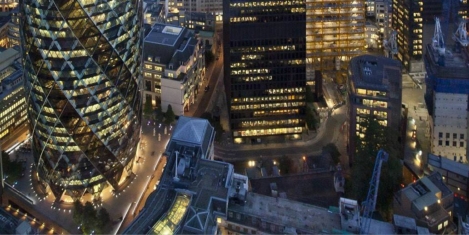April 13, 2017
UK productivity crisis deepens…but technology probably isn’t the solution 0
 Following last week’s report from the ONS on the UK’s intransigent productivity challenge, and the Bank of England’s Chief Economist Andy Haldane’s intervention on the issue, a new report from accountants and business advisers BDO claims that the UK’s productivity crisis is deepening, rather than improving. The latest report claims that while firms are continuing to hire more staff, business output is struggling to pick up. The amount of output produced for each hour worked is therefore likely to slow further, undermining the UK’s already low productivity levels. This is despite the steady increase in employment levels which have been relatively unaffected by the uncertainty surrounding Brexit.
Following last week’s report from the ONS on the UK’s intransigent productivity challenge, and the Bank of England’s Chief Economist Andy Haldane’s intervention on the issue, a new report from accountants and business advisers BDO claims that the UK’s productivity crisis is deepening, rather than improving. The latest report claims that while firms are continuing to hire more staff, business output is struggling to pick up. The amount of output produced for each hour worked is therefore likely to slow further, undermining the UK’s already low productivity levels. This is despite the steady increase in employment levels which have been relatively unaffected by the uncertainty surrounding Brexit.












 Amos Tversky and Daniel Kahneman introduced the concept of Loss Aversion in 1984, highlighting people’s tendency to strongly prefer avoiding losses to acquiring gains. Most studies suggest that losses are twice as powerful, psychologically, as gains. Lose £100 and we will feel a remorse that easily outweighs winning £100. In a similar fashion we find it very hard to see future positives when confronted with short term loses. We understand easily what we have lost but cannot imagine what there is to be gained. Furthermore, as Frederic Bastiat wrote in an 1850 paper, “That Which is Seen, and That Which is Not Seen”, man has a tendency to “pursue a small present good, which will be followed by a great evil to come, rather than a great good to come, at the risk of a small present evil”. Put these together and it is no wonder that, by and large, the future of work, corporate real estate and the workplace is so widely misunderstood.
Amos Tversky and Daniel Kahneman introduced the concept of Loss Aversion in 1984, highlighting people’s tendency to strongly prefer avoiding losses to acquiring gains. Most studies suggest that losses are twice as powerful, psychologically, as gains. Lose £100 and we will feel a remorse that easily outweighs winning £100. In a similar fashion we find it very hard to see future positives when confronted with short term loses. We understand easily what we have lost but cannot imagine what there is to be gained. Furthermore, as Frederic Bastiat wrote in an 1850 paper, “That Which is Seen, and That Which is Not Seen”, man has a tendency to “pursue a small present good, which will be followed by a great evil to come, rather than a great good to come, at the risk of a small present evil”. Put these together and it is no wonder that, by and large, the future of work, corporate real estate and the workplace is so widely misunderstood.





















February 10, 2017
Reflections on the future of work from a mirrored room 0
by Neil Usher • Comment, Facilities management, Technology, Workplace design
More →